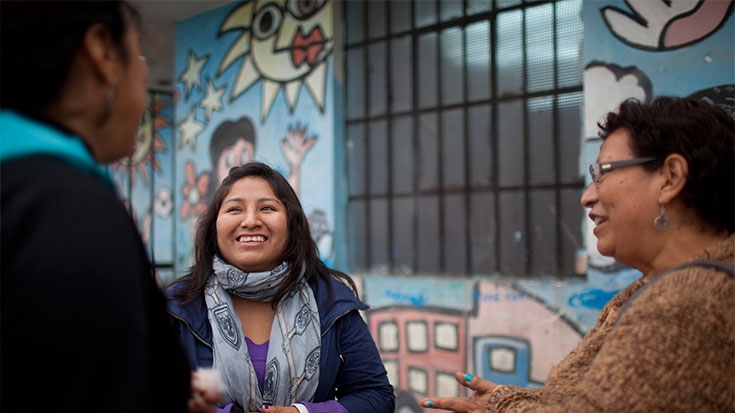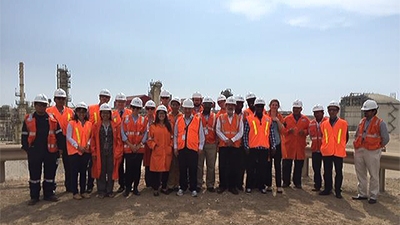“I go back to my country as a different MP and Representative of Kenya after this programme.” – Patrick Mariru (MP, Kenya)
Senior Officials from the World Bank Group and International Monetary Fund introduced Peru within the context of regional and international economic development. Peru represents success in many ways, as a country which has decreased its poverty rate, bolstered its middle class, and touted the lowest inflation rate of the LAC region during the past decade. Further, both the Government and Parliament are steadfast in a ‘results-based approach’, yielding projects that have shown substantive impact while maintaining budgets that allow the necessary fiscal space to operate under a variety of economic circumstances.
With the meaningful financing from the WBG and precautionary IMF arrangements, a framework for conducting policy has resulted in a robust and sustainable economy in the last decade. The government since 1991 has only borrowed from the IMF twice, and all credit has been paid since 2007. Today, only technical assistance and surveillance are done by the IMF in Peru, a sign of Peru’s fiscal achievement. The country now has a surplus of 0.2% GDP, high international reserves and preferential trade access in nearly 75% of countries in the world. Challenges were also measured by speakers and participants, such as further development of the securities market (only 2.9% of GDP currently), diversifying the currency for financing, a slowdown of growth in Peru in FY2014, and creating a broader tax base to pay for public projects (60%-70% of the Peruvian economy is informal).
”Visiting a middle-income country during the Field Visit programme was highly interesting; the challenges faced are very different, but one can get the feeling that the investments and projects are both useful and sustainable.” – Alain Destexhe (MP, Belgium)
The delegation learned about programmes addressing childhood development and day-care, extreme poverty recognition, and providing quality, nutritious and various food groups to young children. Issues of good governance and society in Peru were also addressed throughout the Field Visit. Upon meeting with Civil Society Organizations (CSOs), the MPs heard a variety of opinions from those analyzing trends within the country. As one participant stated, “People could say that Peru is a miracle, or you could say that the glass is half-empty.” Participants discussed access to information, political participation, the informal economy, corruption, and transparency at the local, regional, and national level.
“Africa is immensely rich, yet the people are very poor. What is happening in Peru that is not happening in Africa?” – Mansour Sy (MP, Senegal)
Field Visits
The Delegation visited a wide variety of projects which were financed by the World Bank Group and its private sector arm, the International Finance Corporation (IFC). The Delegation visited SEDAPAL, which is currently managing projects to rehabilitate outdated piping systems in Lima and El Callao. The water supply in each community has remained uninterrupted during the 92 kilometer replacement project, and entire neighbourhoods can be completed within 4-5 days. The Parliamentarians also saw Metropolitano, a revolutionary mass transit system for Lima which has transformed the public transport system in Lima. The system serves approximately 600,000 passengers during peak hours. The bus system opens opportunities for employment and mobility throughout the city.
“What did local communities receive from the extraction project?” – Jocelerme Privert (MP, Haiti)


